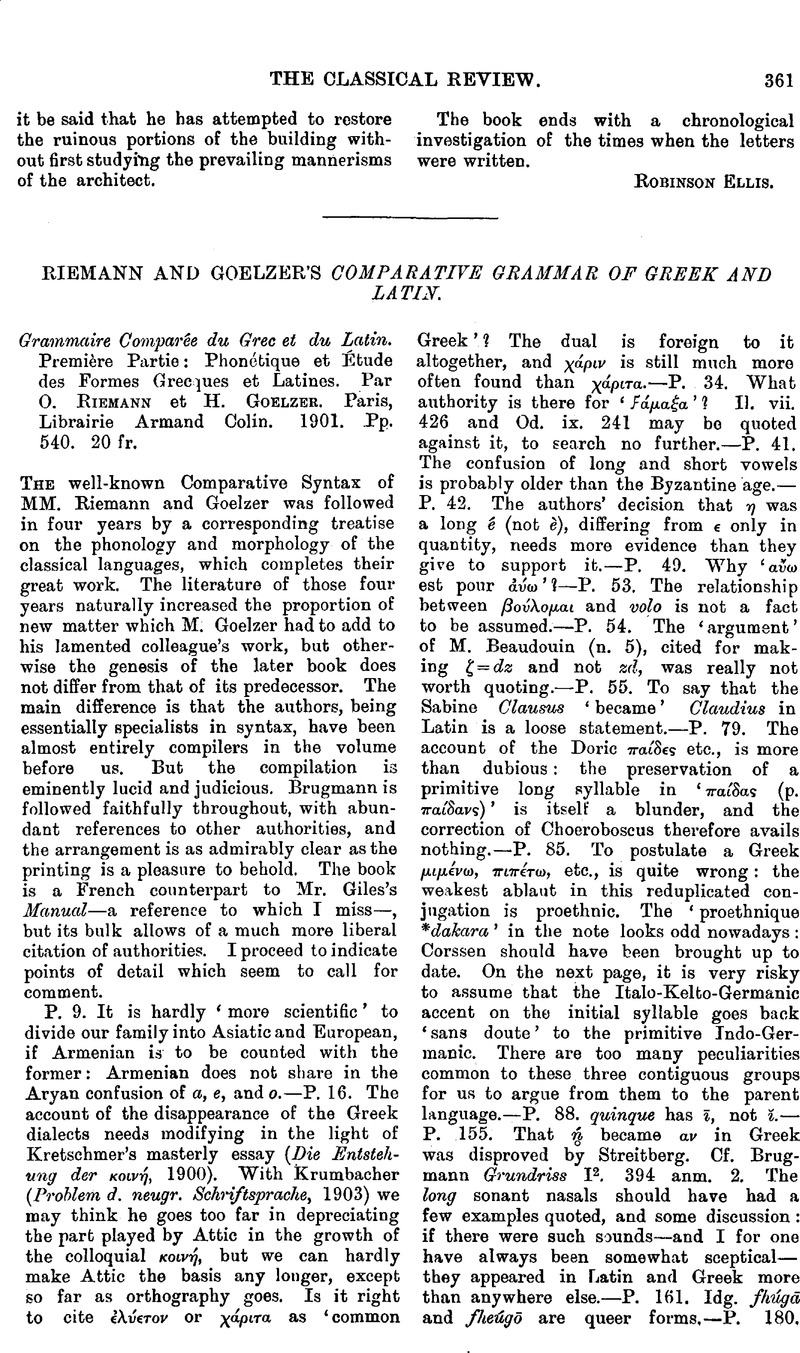No CrossRef data available.
Published online by Cambridge University Press: 27 October 2009

page 362 note 1 A propos of this subject I am tempted to venture a note bearing on the treatment of labiovelars in the Aeolic group, where, as is well known, labials appear generally even before clear towels. It has seemed to me that it is on this point that we must fasten in applying Prof. Ridgeway's suggestive theory. The Aeoliaus, Homer's Achaeans, show exactly the same treatment of labiovelais as do the Umbro-Samnites in Italy and the Gaulish and British branches of the Kelts : they agree in making q uC- into pC (Lat. quc-, ‘Pelasgian’ Greek τɛ-), and q uU- into ku-. This is a striking coincidence of phonology, and strongly suggests Prof. Ridgeway's theory as its true interpretation. I might add a remark on the philology of another distinguished archaeologist: even the linguists stumble at times over labiovelars, and some of Mr. A. B. Cook's brilliant combinations for the Oak can only be justified by revolutionary legislation on those tough subjects. Κερκων and qucrcus is truly seductive. But if it is a true equation Κερκων is not Greek, unless we are to force it into the κς category. And if we do, we must give up the perquus original, and with it the comparison of Hercynia, the Lith. Perkunas, and probably our fir, to say nothing of the Vedic Parjanya. I would rather sacrifice the Quirites and Cercyon.